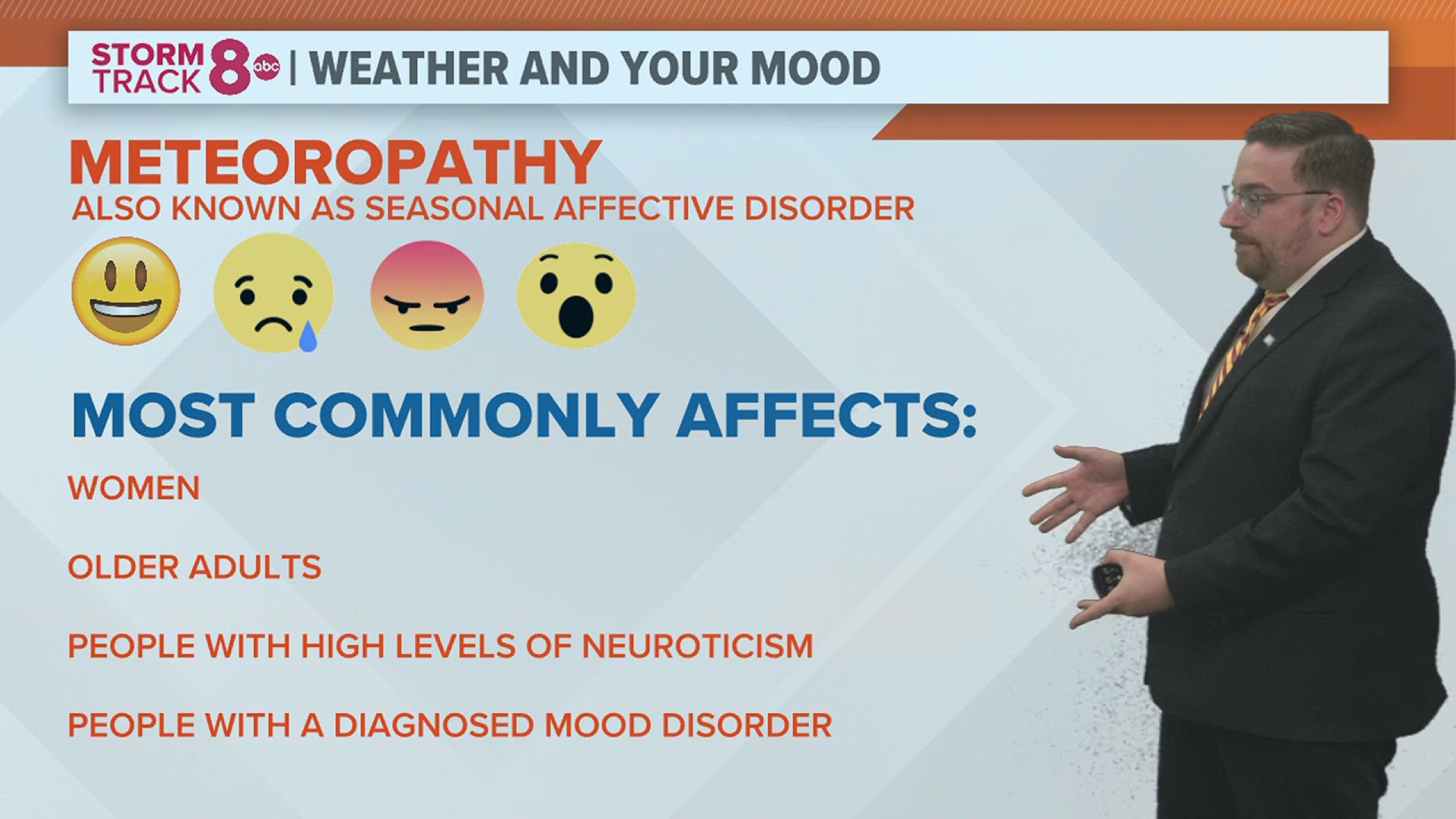MOLINE, Ill — Cloudy days bring the blues and sunny days bring the smiles. That makes sense. But don't forget we're talking about the human brain here, an extremely complex system of nerves and a lot of thought-processing power. Why is it that our mood seems to often be linked to what the days weather is doing, or not doing? Logan from Galesburg, Illinois, asks, "Does the weather affect your mood?" Let's dig in!
We can break this down into three distinct categories: biological, psychological, and individual preferences. Let's start with the biological factors that mix with weather to influence our mood.
The senses
Sun shining down on our skin, a pleasantly feeling temperature, and a stable pressure pattern- all good things to ensure we likely will be feeling pretty darn good on a given day.
Sunlight helps trigger the release of serotonin which is a neurotransmitter linked to happiness and well-being. Hence, why sunnier days typically give us a better mood to work with. However, lack of sunshine can trigger Seasonal Affective Disorder (SAD), bringing on symptoms of depression, low mood, and fatigue.
A comfortable temperature pattern lowers our level of irritability. How many times have you been bone-chilling cold, struggling to adjust your gloves or ear muffs? Likewise, on a hot and humid day, you are constantly wiping sweat from your brow. Annoying, right?


Pressure also plays a role. Each morning on Good Morning Quad Cities, we track any potential rapid changes in pressure. The quicker the change, the more you are likely to feel it. Why? 60 percent of the human body is made up of water that can be expanded and compressed. That's what makes us sensitive to pressure changes.
Psychological
We all have our personal preferences. Some like their surroundings cool, others warm. Some like bright light, others like things a little dimmer. We also like to keep a routine, which the weather often likes to disrupt. Unexpected weather changes will certainly impact our moods negatively. Seasonal changes can also influence our mood due to the lack of daylight.
Individual
Of course, not all of us function the same. Some of us are more sensitive to weather changes than others. Individuals with pre-existing mental health conditions may be more vulnerable to weather-related mood swings. Also, folks who tend to spend more time outdoors are likely to be affected by weather compared to those who stay inside.
Whatever your preference, living in the Midwest gives you a unique opportunity to find your preferred weather pattern since we experience nearly all of them right here in our backyard!
Have a question that you would like me to answer for an upcoming Ask Andrew segment? Submit it, here!

